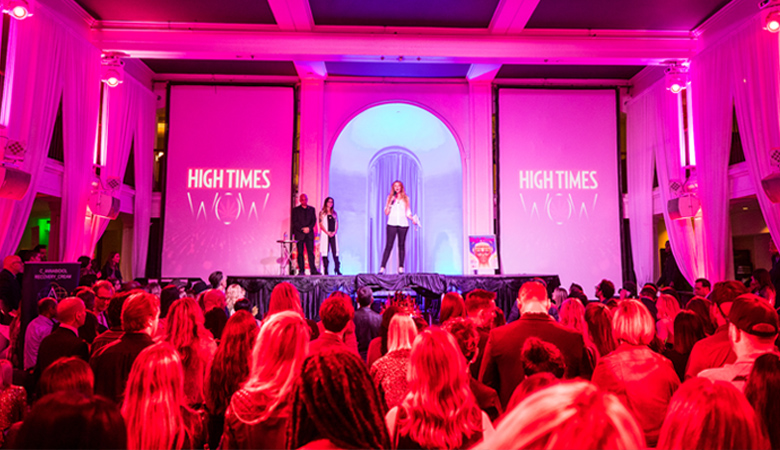My name is Corey Thomas, I am the founder of Honey Pot and I am a Woman of Weed. I was asked to tell my story at an event honoring the 2018 High Times Women of Weed last week. When I started in the cannabis space, telling our story was not something that we did, so I had quite a bit of anxiety doing so. But looking out at a room full of my peers, I felt a tremendous amount of support and pride. I spoke for a few minutes about the good and the bad parts of my history, and I would like to share that speech here as well.
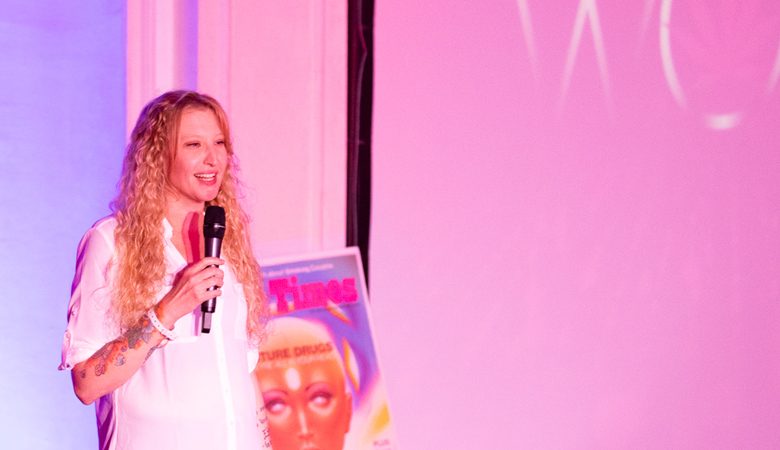
“First of all, I want to say Thank You. Thank you to High Times and to every one of you for supporting the plant that I care so much about, and thank you for the incredible honor of representing the “women of weed”. I would also like to take this moment to thank some of the women in the space that I look up to, women like Brownie Mary, Mila Jansen, Valerie Corral, Debbie Goldsberry, and Dr. Dina, and the lesser-known women like my Mother and so many other Mothers and Daughters. And to the men of this male-dominated industry who have protected and supported these beautiful women of weed, I thank you as well.
My name is Corey Thomas, I am a second-generation cannabis activist and farmer, I am the founder of Honey Pot, and a 14-time High Times Cannabis Cup Winner. I have been called a stoner, a drug addict, a loser, a dealer, an entrepreneur, and an innovator. I am a soldier in the war on drugs and a woman of weed.
1996 was a monumental year for me and for cannabis history. It was my freshman year of high school, the year that I first consumed cannabis and the year that cannabis was legalized for medicinal purposes with Proposition 215 in California.
My parents moved from Southern to Central California in early 2000 and started their first cultivation operation. I was 17 years old and the thought of leaving my life in Southern California was inconceivable. I started promoting in the Los Angeles rave scene which led me to meet a group of young men who quickly became like brothers to me. These men were a big part of the Los Angeles cannabis market at the time and I learned a lot about the business of cannabis from them.
I attended my first High Times Cannabis Cup in Amsterdam in 2001. It was a life-changing experience that I don’t think I will ever forget. It gave me a peek into where the industry was and what it would become. I would have never believed you then if you would’ve told me that I would be standing here as High Times most awarded woman, representing the women of the cannabis industry.
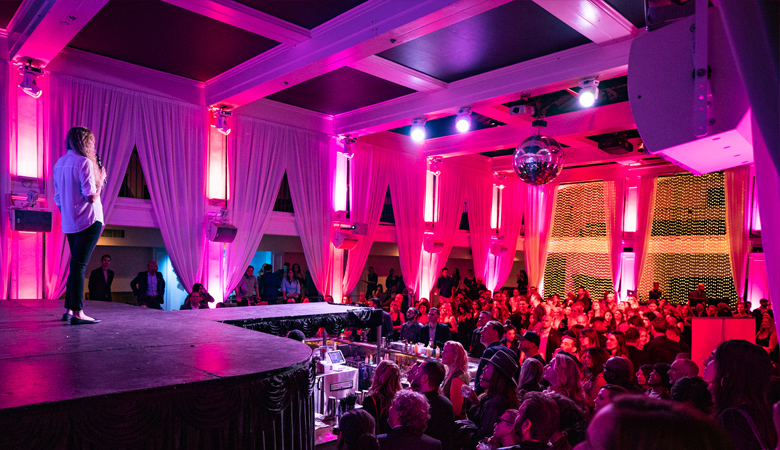 In the early 2000s, pounds of indoor flowers were selling for up to $4000 a piece, sometimes higher in Los Angeles. Those high prices came with a much higher risk. That was the time that I lovingly call “the dangerous duffle bag days”. If you got caught with a load in your trunk there was a good chance you were going to serve time. You had to watch your back at every turn, make sure you weren’t being followed home from the grow store. You had to cover your tracks and lie, a lot. Even supposed friends quickly became enemies when there was that kind of money involved. Before my 21st Birthday, my family’s life had already been threatened when a deal went bad, I experienced being the victim of a home invasion attempted robbery, and I witnessed a murder.
In the early 2000s, pounds of indoor flowers were selling for up to $4000 a piece, sometimes higher in Los Angeles. Those high prices came with a much higher risk. That was the time that I lovingly call “the dangerous duffle bag days”. If you got caught with a load in your trunk there was a good chance you were going to serve time. You had to watch your back at every turn, make sure you weren’t being followed home from the grow store. You had to cover your tracks and lie, a lot. Even supposed friends quickly became enemies when there was that kind of money involved. Before my 21st Birthday, my family’s life had already been threatened when a deal went bad, I experienced being the victim of a home invasion attempted robbery, and I witnessed a murder.
In 2006 I got pregnant with my son and could no longer safely work as a broker in the space, so my parents helped to build my first grow house. When my son was born, working in the industry provided me the chance to be able to spend the first few years of his life at home with him, as a single mother. This was around the same time the industry in Los Angeles made a great shift. Obama was campaigning for his 2008 presidential election and made promises to protect our community. Grow houses became grow warehouses and dispensaries were opening every day. Luckily I had the foresight to see the need to start developing something bigger, to build a brand. I made a variety of edibles, some successful others were not. In the summer of 2011, my friends offered me a large amount of honey they weren’t going to use, and Honey Pot was born.
I won my first cannabis cup in the spring of 2015 for our topical balm, my Mother had given me the recipe and with a few of my own additions and we had an award-winning product. The morning after the awards ceremony, I remember sitting in our cheap hotel in San Bernadino and crying. I cried for my step-father who was serving time for non-violent drug charges. I cried for my entire family who had risked so much for this wonderful plant. I cried for the younger version of myself that was judged and put into the “stoner” box by society. I knew at that moment that I was born for this, born to commit my life to a plant that helped and continues to help so many people not to mention our planet.
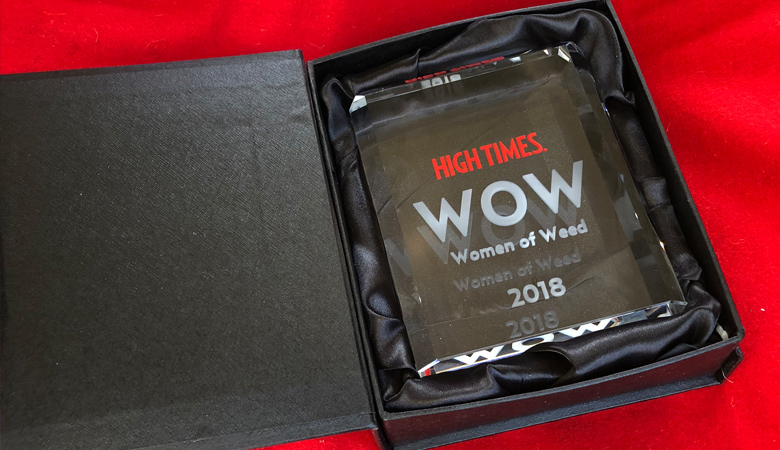 The last few years have been equally some of the most rewarding and difficult years of my life. The passing of Prop 64 changed the entire industry. Small business owners like myself struggled and are still struggling to obtain licensing. The capital it takes to stay in our industry is staggering. I have built some strong relationships in the industry some of which led me to the opportunity to partner with Monterey County’s Greenfield Organix. I rebranded and reformulated my products to meet the states compliance guidelines, and I am proud to be back on the shelf in this new legal climate.
The last few years have been equally some of the most rewarding and difficult years of my life. The passing of Prop 64 changed the entire industry. Small business owners like myself struggled and are still struggling to obtain licensing. The capital it takes to stay in our industry is staggering. I have built some strong relationships in the industry some of which led me to the opportunity to partner with Monterey County’s Greenfield Organix. I rebranded and reformulated my products to meet the states compliance guidelines, and I am proud to be back on the shelf in this new legal climate.
Last fall I had the honor of gracing the cover of High Times Magazine, it was an accomplishment I never thought was possible. Receiving that honor was more rewarding that I can describe with words. My family’s life’s work has been devoted to developing this plant, as well as providing safe access for all. But the fight is not over. We must continue to take risks, to innovate; we must keep pressing forward, even in the face of inequality and oppression. We are the women of weed, we will not be silenced and we will not fail.
Again, thank you to High Times and to all of you for doing your part to change society’s perception of this wonderful plant and the people who love it.”
I also had the honor of introducing a young lady named Rylie Madeler. Rylie was the youngest honoree of the evening, she is a thirteen-year-old bone cancer survivor and the founder of her own non-profit. Stories like Rylie’s give me a reason to continue to work hard and to create. Learn more about Rylie on her website https://ryliessmilefoundation.org.
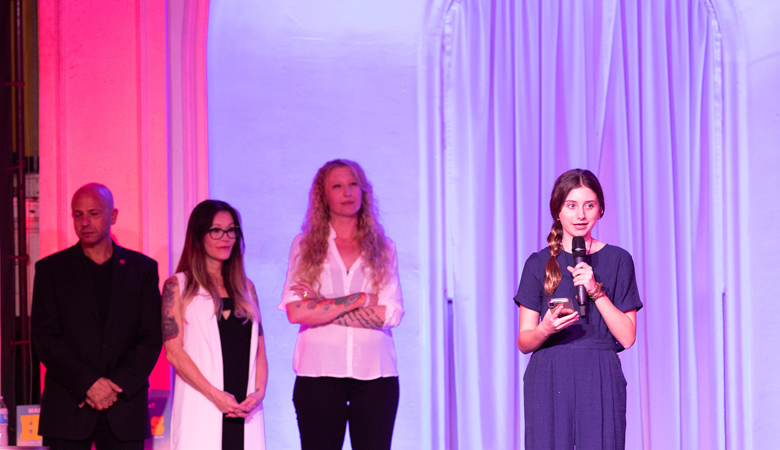
Photos provided by High Times and Jesse Faatz

